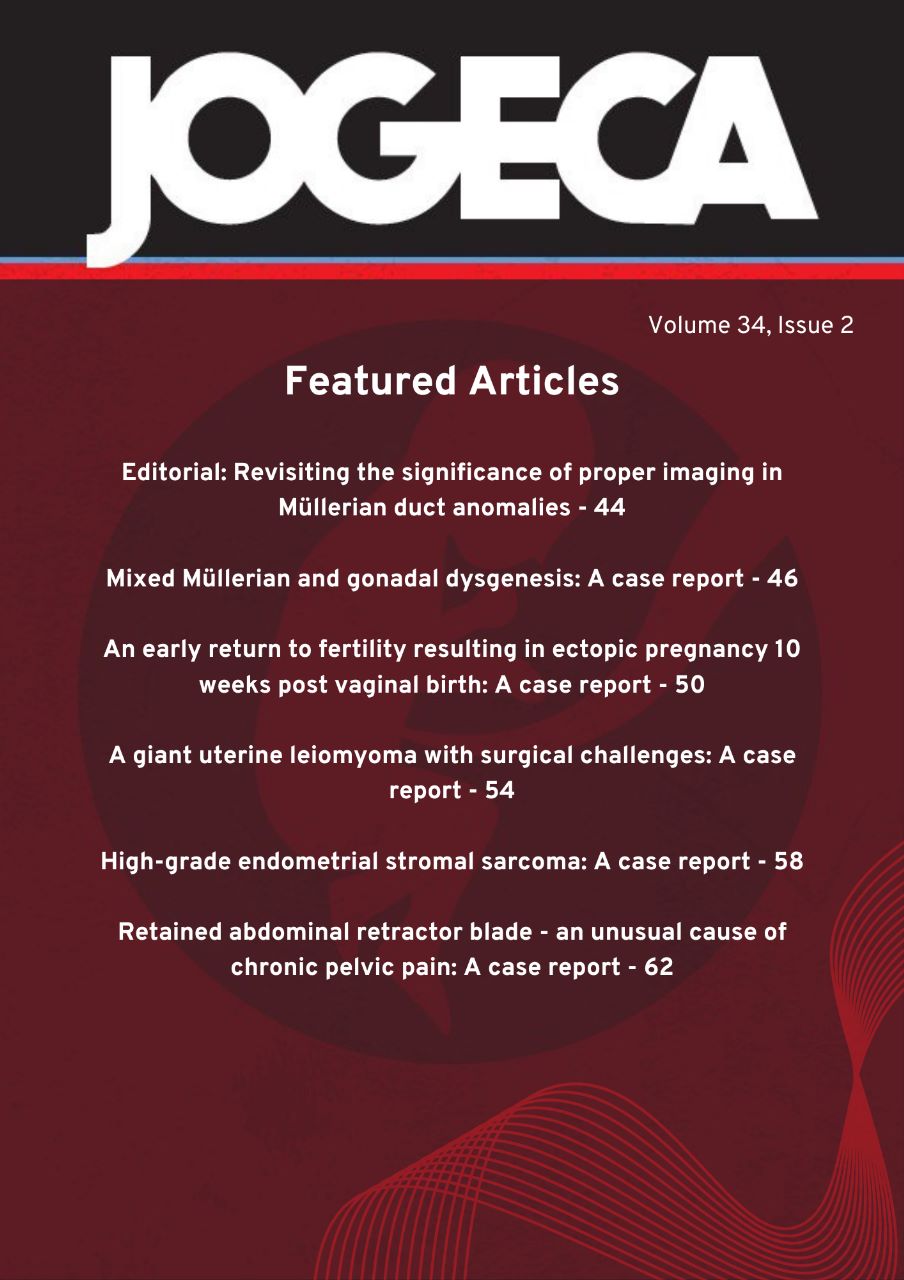PROTEIN S DEFICIENCY IN PREGNANCY: TO TREAT OR NOT TO TREAT. A CASE SERIES.
DOI:
https://doi.org/10.59692/jogeca.v32i2.234Keywords:
Protein S deficiency, thrombophilia, Pregnancy, Anti-thrombotic agentsAbstract
Introduction: Protein S deficiency is rare occurring in only about 3 out of 10,000 women. Thrombophilias, whether inherited or acquired, have been associated with adverse reproductive outcomes such as recurrent first trimester pregnancy losses, second and third trimester pregnancy losses, pre-eclampsia, fetal growth restriction, placental abruption and venous thrombo-embolism. Treatment of protein S deficiency with anticoagulation in pregnancy is usually individualized depending on patient prior history and presenting symptoms. We report of 2 cases of women with protein S deficiency in pregnancy who had varied management and conduct a literature review on the salient features of this condition in pregnancy.
Cases: Two women, who were sisters and had a prenatal diagnosis of protein S deficiency, were managed in their current pregnancies. One was on her fifth pregnancy having had adverse pregnancy outcomes and the other in her first pregnancy. One of the lady was on anti-thrombotic agents prior to the pregnancy which was continued during the pregnancy and the other was not started on anti-coagulation. They both had good pregnancy outcomes in the documented pregnancies.
Conclusion: Protein S deficiency in pregnancy is a rare medical condition which most clinicians may not come across in their practice. The patients outlined had a prenatal diagnosis and hence presented no diagnostic dilemma. However, thrombophilias should be suspected in women with recurrent adverse pregnancy outcomes that have not been explained with other causes. The management of these patients largely involve use of anti-thrombotic agents with multi-disciplinary care being of benefit in improving outcomes.
Downloads
Published
How to Cite
Issue
Section
Categories
License
Copyright (c) 2020 The authors.

This work is licensed under a Creative Commons Attribution 4.0 International License.




